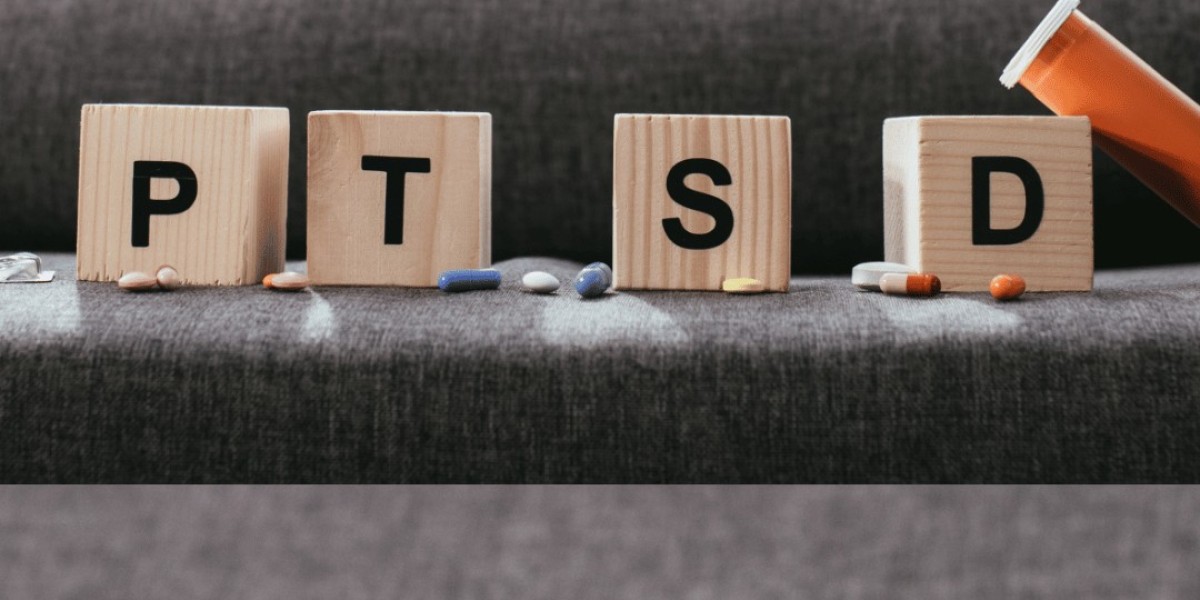Fortunately, medical science continues to evolve, offering alternative treatments that don't rely on traditional medication or talk therapy. One such promising innovation is Transcranial Magnetic Stimulation (TMS), a non-invasive brain stimulation technique that has shown significant potential in helping individuals manage and recover from PTSD. If you’ve been searching for TMS Therapy Near Me, this breakthrough treatment could be the solution you’ve been looking for.
Why PTSD Needs Better Treatment Options
PTSD can develop after experiencing deeply distressing events such as war, natural disasters, physical or emotional abuse, or serious accidents. While anyone can suffer from PTSD, it is particularly common among soldiers, firefighters, police officers, EMTs, and other frontline workers who are often exposed to traumatic experiences in the line of duty.
Traditional treatment approaches typically involve a combination of psychotherapy (like Cognitive Behavioral Therapy or EMDR) and medication (such as SSRIs). However, these solutions are not always effective for everyone. Some individuals experience severe side effects from medications, while others are unable or unwilling to take drugs due to professional restrictions, personal beliefs, or a history of substance abuse.
This is where TMS for PTSD offers a beacon of hope. It provides a drug-free, non-invasive alternative for treating PTSD, and it's backed by growing clinical research and FDA approval for related mental health conditions like depression.
Understanding TMS: A Closer Look
Transcranial Magnetic Stimulation is a type of focal neuromodulation, which means it targets specific areas of the brain to adjust neural activity. Rather than influencing the whole brain, TMS zeroes in precise regions associated with mood, memory, and emotional regulation areas often disrupted in people with PTSD.
The treatment uses electromagnetic pulses delivered through a coil placed on the patient’s scalp. These pulses stimulate nerve cells in the brain’s prefrontal cortex, particularly the left dorsolateral prefrontal cortex (DLPFC), a region linked to mood regulation and emotional processing.
By activating this part of the brain, TMS helps "retrain" neural pathways, promoting healthier brain function and reducing symptoms of PTSD. Importantly, this is achieved without the need for surgery, anesthesia, or medication.
How TMS Therapy Works for PTSD
Research shows that PTSD can alter how different parts of the brain communicate. In particular, the areas responsible for distinguishing between present and past experiences such as the amygdala, hippocampus, and prefrontal cortex can become dysregulated. This explains why many PTSD sufferers feel as though they are "reliving" traumatic events, even when they're safe in the present moment.
If you're exploring TMS Treatment Near Me , TMS helps restore balance to these brain regions by regulating the electrical activity of neurons. This promotes a healthier stress response and improves the brain’s ability to manage anxiety, fear, and emotional triggers.
The Treatment Process
A typical TMS treatment plan for PTSD closely resembles that used for Major Depressive Disorder (MDD). The standard protocol includes:
- Five sessions per week, each lasting about 20 minutes
- Six weeks of daily sessions, followed by a three-week tapering phase with fewer sessions
- No need for hospitalization, anesthesia, or downtime
During each session, the patient sits comfortably in a treatment chair while a helmet-like device is positioned on the head. The device delivers precisely calibrated magnetic pulses to the targeted brain area. Most patients describe the sensation as a light tapping or clicking sound not painful, but noticeable.
After each session, patients can immediately resume their regular activities, including work or school. There are no systemic side effects such as weight gain, fatigue, sexual dysfunction, or memory issues, which are common with psychiatric medications.
Effectiveness of TMS for PTSD
Multiple studies have shown that TMS can be effective in significantly reducing the symptoms of PTSD especially in patients who have not responded well to traditional treatments. It’s also been observed that individuals with co-occurring depression and PTSD tend to show improvements in both conditions following a full course of TMS therapy.
Additionally, the treatment is customizable. A psychiatrist can tailor the intensity, frequency, and location of stimulation based on a patient’s unique needs and neurological responses.
Here are a few key benefits of TMS for PTSD:
- Non-invasive and drug-free
- Minimal to no side effects
- No recovery time required
- Clinically proven for depression, with growing support for PTSD
- Safe for long-term use and repeat treatments if necessary
Is TMS Right for You or a Loved One?
If you or someone you care about is living with PTSD and struggling to find relief, TMS may be worth exploring. It's especially suitable for:
- Individuals with medication-resistant PTSD
- People in safety-sensitive professions (military, police, aviation, etc.)
- Those who have experienced intolerable side effects from psychiatric medications
- Patients with co-occurring depression and anxiety disorders
Before starting TMS therapy, it’s essential to consult with a licensed psychiatrist or neurologist who specializes in brain stimulation treatments. A thorough evaluation will help determine if you are a suitable candidate and what kind of treatment protocol would be most effective.
Final Thoughts
PTSD doesn’t have to be a lifelong sentence. While the journey to healing is different for everyone, innovative treatments like Transcranial Magnetic Stimulation are making it possible for more people to find relief, regain control, and restore their quality of life without the burden of drugs or invasive procedures.
As science continues to unlock the brain’s mysteries, therapies like TMS offer new hope for those who have suffered in silence for far too long.






